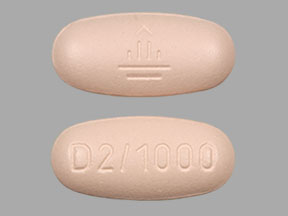Jentadueto and Alcohol/Food Interactions
There are 2 alcohol/food/lifestyle interactions with Jentadueto (linagliptin / metformin).
Metformin Food/Lifestyle
Major Food Interaction
Consumer information for this interaction is not currently available.
GENERALLY AVOID: Alcohol can potentiate the effect of metformin on lactate metabolism and increase the risk of lactic acidosis. In addition, alcohol may cause hypoglycemia or hyperglycemia in patients with diabetes. Although hypoglycemia rarely occurs during treatment with metformin alone, the risk may increase with acute consumption of alcohol. Even modest amounts can lower blood sugar significantly, especially when the alcohol is ingested on an empty stomach or following exercise. The mechanism involves inhibition of both gluconeogenesis as well as the counter-regulatory response to hypoglycemia. Episodes of hypoglycemia may last for 8 to 12 hours after ethanol ingestion. By contrast, chronic alcohol abuse can cause impaired glucose tolerance and hyperglycemia. Moderate alcohol consumption generally does not affect blood glucose levels in patients with well controlled diabetes.
Food may have varying effects on the absorption of metformin from immediate-release versus extended-release formulations. When a single 850 mg dose of immediate-release metformin was administered with food, mean peak plasma concentration (Cmax) and systemic exposure (AUC) decreased by 40% and 25%, respectively, and time to peak plasma concentration (Tmax) increased by 35 minutes compared to administration under fasting conditions. By contrast, administration of extended-release metformin with food increased AUC by 50% without affecting Cmax or Tmax, and both high- and low-fat meals had the same effect. These data may not be applicable to formulations that contain metformin with other oral antidiabetic agents.
MANAGEMENT: Metformin should be taken with meals, and excessive alcohol intake should be avoided during treatment. Diabetes patients in general should avoid consuming alcohol if their blood glucose is not well controlled, or if they have hypertriglyceridemia, neuropathy, or pancreatitis. Alcohol should not be consumed on an empty stomach or following exercise, as it may increase the risk of hypoglycemia. Patients should contact their physician immediately if they experience potential signs and symptoms of lactic acidosis such as malaise, myalgia, respiratory distress, increasing somnolence, and nonspecific abdominal distress (especially after stabilization of metformin therapy, when gastrointestinal symptoms are uncommon). With more marked acidosis, there may also be associated hypothermia, hypotension, and resistant bradyarrhythmias. Metformin should be withdrawn promptly if lactic acidosis is suspected. Serum electrolytes, ketones, blood glucose, blood pH, lactate levels, and blood metformin levels may be useful in establishing a diagnosis. Lactic acidosis should be suspected in any diabetic patient with metabolic acidosis lacking evidence of ketoacidosis (ketonuria and ketonemia).
Linagliptin Food/Lifestyle
Moderate Food Interaction
Consumer information for this interaction is not currently available.
GENERALLY AVOID: Alcohol may cause hypoglycemia or hyperglycemia in patients with diabetes. Hypoglycemia most frequently occurs during acute consumption of alcohol. Even modest amounts can lower blood sugar significantly, especially when the alcohol is ingested on an empty stomach or following exercise. The mechanism involves inhibition of both gluconeogenesis as well as the counter-regulatory response to hypoglycemia. Episodes of hypoglycemia may last for 8 to 12 hours after ethanol ingestion. By contrast, chronic alcohol abuse can cause impaired glucose tolerance and hyperglycemia. Moderate alcohol consumption generally does not affect blood glucose levels in patients with well controlled diabetes. A disulfiram-like reaction (e.g., flushing, headache, and nausea) to alcohol has been reported frequently with the use of chlorpropamide and very rarely with other sulfonylureas.
MANAGEMENT: Patients with diabetes should avoid consuming alcohol if their blood glucose is not well controlled, or if they have hypertriglyceridemia, neuropathy, or pancreatitis. Patients with well controlled diabetes should limit their alcohol intake to one drink daily for women and two drinks daily for men (1 drink = 5 oz wine, 12 oz beer, or 1.5 oz distilled spirits) in conjunction with their normal meal plan. Alcohol should not be consumed on an empty stomach or following exercise.
Switch to professional interaction data
Jentadueto drug interactions
There are 457 drug interactions with Jentadueto (linagliptin / metformin).
Jentadueto disease interactions
There are 6 disease interactions with Jentadueto (linagliptin / metformin) which include:
More about Jentadueto (linagliptin / metformin)
- Jentadueto consumer information
- Check interactions
- Compare alternatives
- Pricing & coupons
- Reviews (15)
- Drug images
- Side effects
- Dosage information
- During pregnancy
- Generic availability
- FDA approval history
- Drug class: antidiabetic combinations
- En español
Related treatment guides
Drug Interaction Classification
| Highly clinically significant. Avoid combinations; the risk of the interaction outweighs the benefit. | |
| Moderately clinically significant. Usually avoid combinations; use it only under special circumstances. | |
| Minimally clinically significant. Minimize risk; assess risk and consider an alternative drug, take steps to circumvent the interaction risk and/or institute a monitoring plan. | |
| No interaction information available. |
See also:
Further information
Always consult your healthcare provider to ensure the information displayed on this page applies to your personal circumstances.


